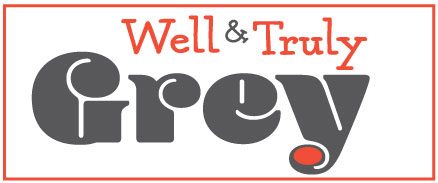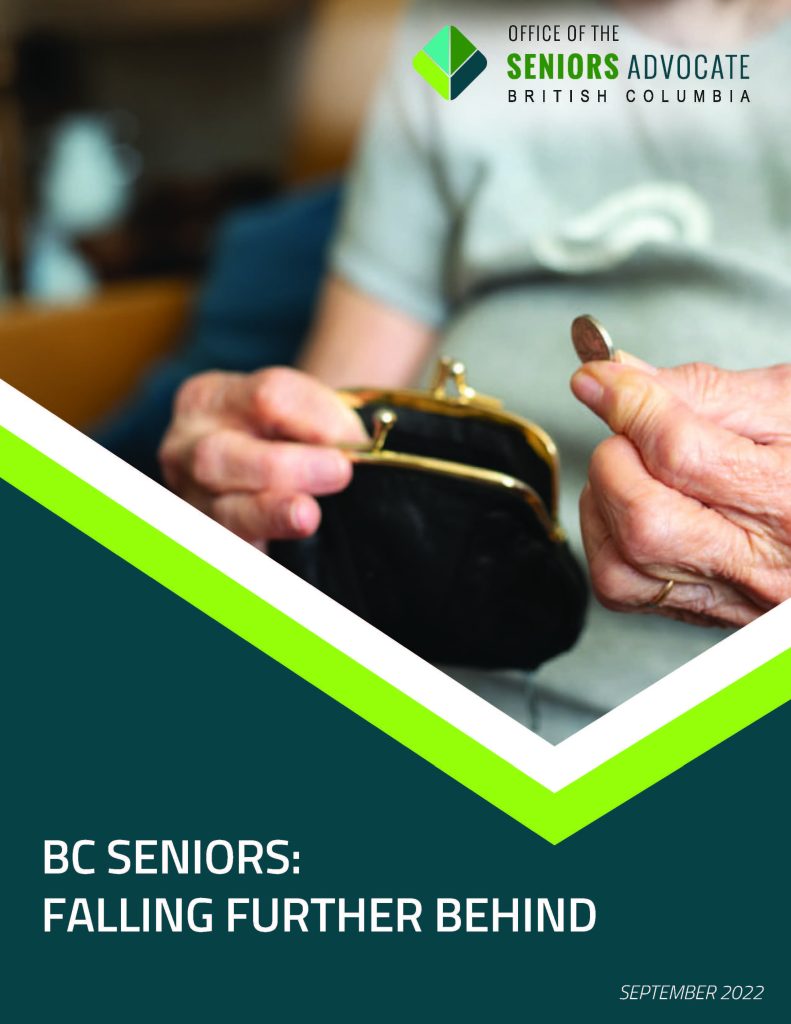BC seniors have lowest incomes, struggling financially
BC seniors bare experiencing “significance of the financial hardship,” says BC Seniors Advocate Isobel Mackenzie.
Her Office of the Seniors Advocate has released BC Seniors: Falling Further Behind, a review of the financial challenges facing BC seniors. The report highlights the impact of rising costs on BC seniors who depend on government pensions and ranks BC as the lowest in its financial support for seniors compared to other provinces and territories.
“Seniors I speak with tell me their pension incomes are not keeping up with rising costs and they are paying too much for rent, groceries, dental care, homecare, house repairs and other essentials,” sayts Mackenzie. “Currently 45 per cent of seniors in British Columbia are living on less than minimum wage and 25 per cent of seniors are living on less than $21,000 a year. These are the lowest incomes we find by a wide margin and it speaks to the significance of the financial hardship seniors are experiencing.”
The report also notes the minimum wage has increased 40 per cent over the past five years while pension incomes have only risen 14 per cent during the same period.
The report also highlights that most seniors do not have a private benefits plan and must pay out-of-pocket for the total cost of dental care, hearing aids, eyeglasses, walkers, wheelchairs, and any other necessary medical equipment because the provincial government does not fund them.
The report outlines the challenges with a number of government subsidies including the BC Housing Shelter Aid for Elderly Renters (SAFER) and the Seniors Subsidized Housing (SSH) programs that offer some assistance to nearly 30 per cent of the seniors who rent.
The report includes the results of a province wide survey of low-income seniors and a province- wide consultation with over 80 community agencies who work with seniors.
The report makes 10 recommendations.
- Index the BC Seniors Supplement to inflation consistent with other income supports such as GIS/OAS and CPP.
- Redesign the Shelter Aid for Elderly Renters (SAFER) program to reflect the current reality of the BC rental market and ensure yearly rent increases are recognized.
- Increase the number of Seniors Subsidized Housing Units with a particular focus on rural BC where the overall supply of rental accommodation for seniors is most challenging.
- Increase awareness
- of the Property Tax Deferral Program and examine an expansion of the program for low- and modest-income seniors to defer other costs such as strata fees, hydro costs and other municipal charges. Examine how seniors living in co- operative housing might be able to take advantage of the program.
- Develop a program to assist low- and modest-income seniors with major home repairs.
- Eliminate the daily rate for publicly funded home support services.
- Provide an extended health benefit for seniors that includes eyeglasses, hearing aids, mobility aids and necessary medical equipment. The cost of the plan could be covered by premiums based on income, ensuring it is an affordable option for all BC seniors.
- Work with the federal government to ensure dental coverage for seniors with co- payments and deductibles based on income or include in an overall extended benefit plan.
- Provide an annual province-wide bus pass for all seniors that includes handyDART. The fee for the pass could be based on a sliding scale matched to income.
- Develop a comprehensive plan to build the capacity of seniors’ centres across BC to better support social engagement and help support older people access the supports and services they need to continue to live independently.
The report is available onlin

